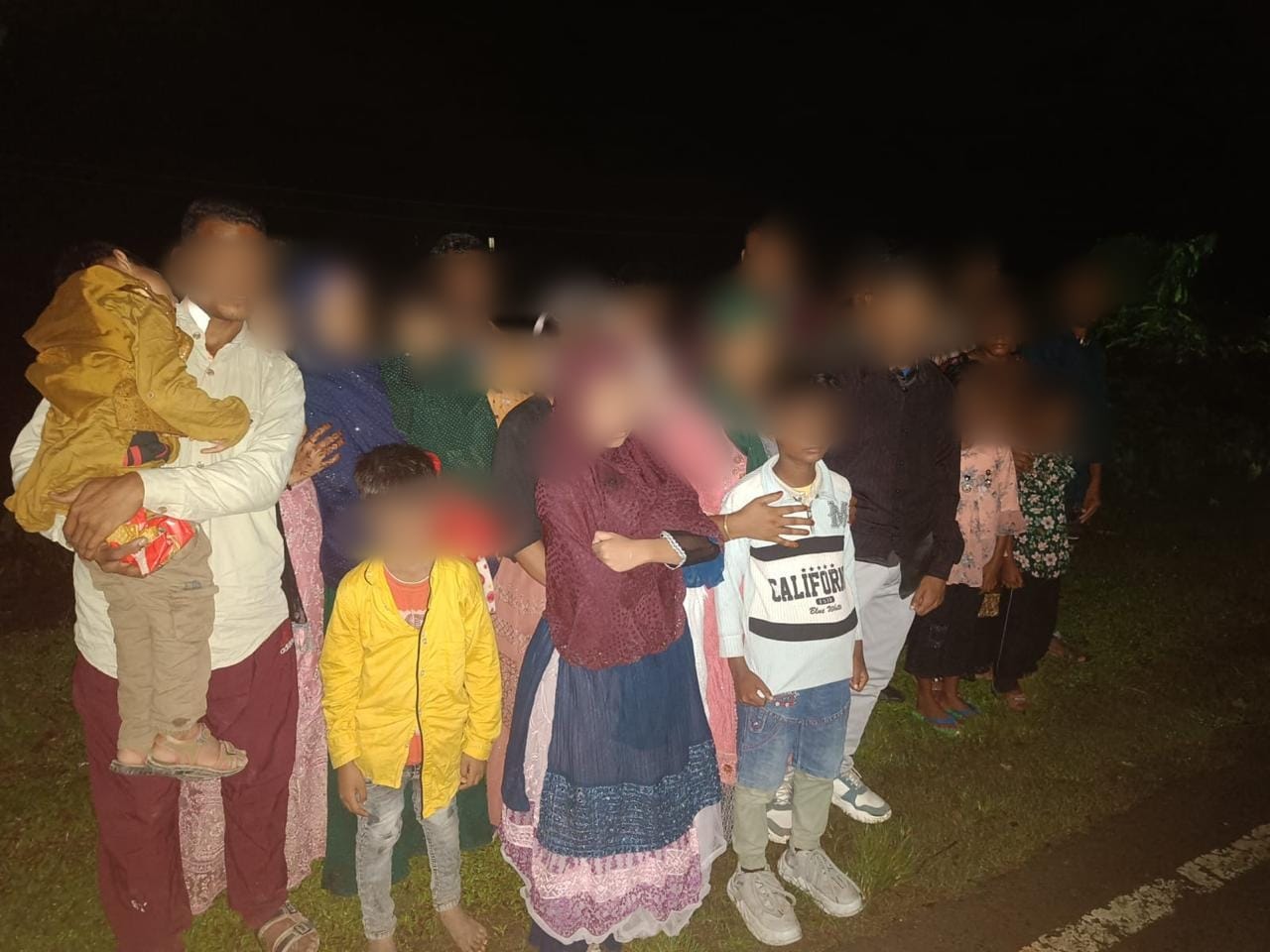On August 30, 2025, Assam Chief Minister Himanta Biswa Sarma announced that the state police had pushed back 33 alleged “infiltrators” to Bangladesh, and vowed that such operations would continue in the coming months. Sarma described these actions as part of the government’s broader campaign against “illegal foreigners.”
Taking to X, CM Sarma wrote “Now playing on illegal infiltrators playlist
Assam Police take me home, to the place I belong..
33 new infiltrators have been PUSHED BACK to where they belong — Bangladesh.
BEWARE: Our stringent efforts continue and will further intensify in the coming days.”
Now playing on illegal infiltrators playlist ⏯️
Assam Police take me home, to the place I belong..
33 new infiltrators have been PUSHED BACK to where they belong — Bangladesh.
BEWARE: Our stringent efforts continue and will further intensify in the coming days. pic.twitter.com/7e99AuGD5X
— Himanta Biswa Sarma (@himantabiswa) August 30, 2025
This official acknowledgement marks another significant escalation. In May 2025, civil society groups had already documented attempted and unlawful pushbacks of Bengali-speaking Muslim women from Assam, several of whom were subsequently rescued and brought back after widespread outcry. Now, CM Sarma has warned that the crackdown would only intensify. It is crucial to note that CM Sarma did not specify the exact entry point for this latest batch.
Showing Adarniya Shri @AmitShah ji the firm progress we have made in evicting illegal settlers from Assam’s lands. pic.twitter.com/hhcgNAyZa9
— Himanta Biswa Sarma (@himantabiswa) August 30, 2025
As per The Assam Tribune. Law enforcement claims a steady weekly removal of 70 to 100 individuals, enforced by Assam Police and BSF, now on heightened alert across the 1,885 km border with Bangladesh.
Due process bypassed
Revived from dormancy, the Immigrants (Expulsion from Assam) Act, 1950 grants district commissioners the authority to expel individuals entering after March 24, 1971, without tribunal intervention. This draconian tool bypasses due legal process, enabling swift deportations both of long-resident undocumented immigrants and fresh entrants
Since mid-2025, Assam has reported weekly pushbacks ranging between 70 to 100 individuals—a ramped-up, relentless enforcement effort. Surveillance along the 1,885 km Indo–Bangladesh border has been beefed up by the Assam Police and BSF, particularly in historically vulnerable stretches.
Notable, as per Times of India, on multiple occasions, Dhaka has publicly denied accepting individuals pushed across the border by Indian authorities, insisting that only documented Bangladeshi citizens with verified proof can be received. In this context, the Assam government’s claim of pushing back “33 infiltrators” raises unresolved questions: Who verified their nationality? On what legal basis were they expelled? Were Bangladeshi authorities even informed?
Under Indian law, Foreigners Tribunals are the only quasi-judicial bodies authorised to determine questions of citizenship and foreigner status. Deportation requires central government sanction, diplomatic coordination, and formal handover to the other state. By contrast, “pushbacks” involve physically expelling people across the border without judicial or diplomatic procedure. Such actions therefore bypass both due process and constitutional safeguards, undermining the principle of rule of law.
Political messaging vs constitutional duty
Arguments have been raised against Assam government’s repeated claims of “success” in pushing back alleged infiltrators serve a political narrative rather than a legal process. Branding individuals as “illegal foreigners” without tribunal adjudication or central authorisation weaponises citizenship disputes, heightening insecurity among minority communities. This approach stands in sharp contrast to India’s constitutional guarantee of equality before law and due process, as well as its obligations under international human rights law prohibiting arbitrary expulsion.
Yet, legal resistance is growing. Habeas corpus petitions in Gauhati High Court and the Supreme Court challenge the constitutionality of such pushbacks. Families of deportees allege disappearances and forcible handovers without documentation, raising fears of statelessness.
Meanwhile, according to a report of Times of India, opposition leader Debabrata Saikia has called on the Union government to review BSF’s monitoring framework, warning of diplomatic tensions with Dhaka if India persists with unilateral expulsions.
Ultimately, while Sarma’s expulsions play well as a populist performance of strength, they expose deep fractures in Assam’s legal regime—trading due process for political spectacle, and risking human rights violations in the name of security.
Related:
Not a Foreigner! Foreigners’ Tribunal declares Sukumar Baishya Indian citizen
Assam government to withdraw ‘Foreigner’ cases against Non-Muslims under Citizenship Amendment Act

